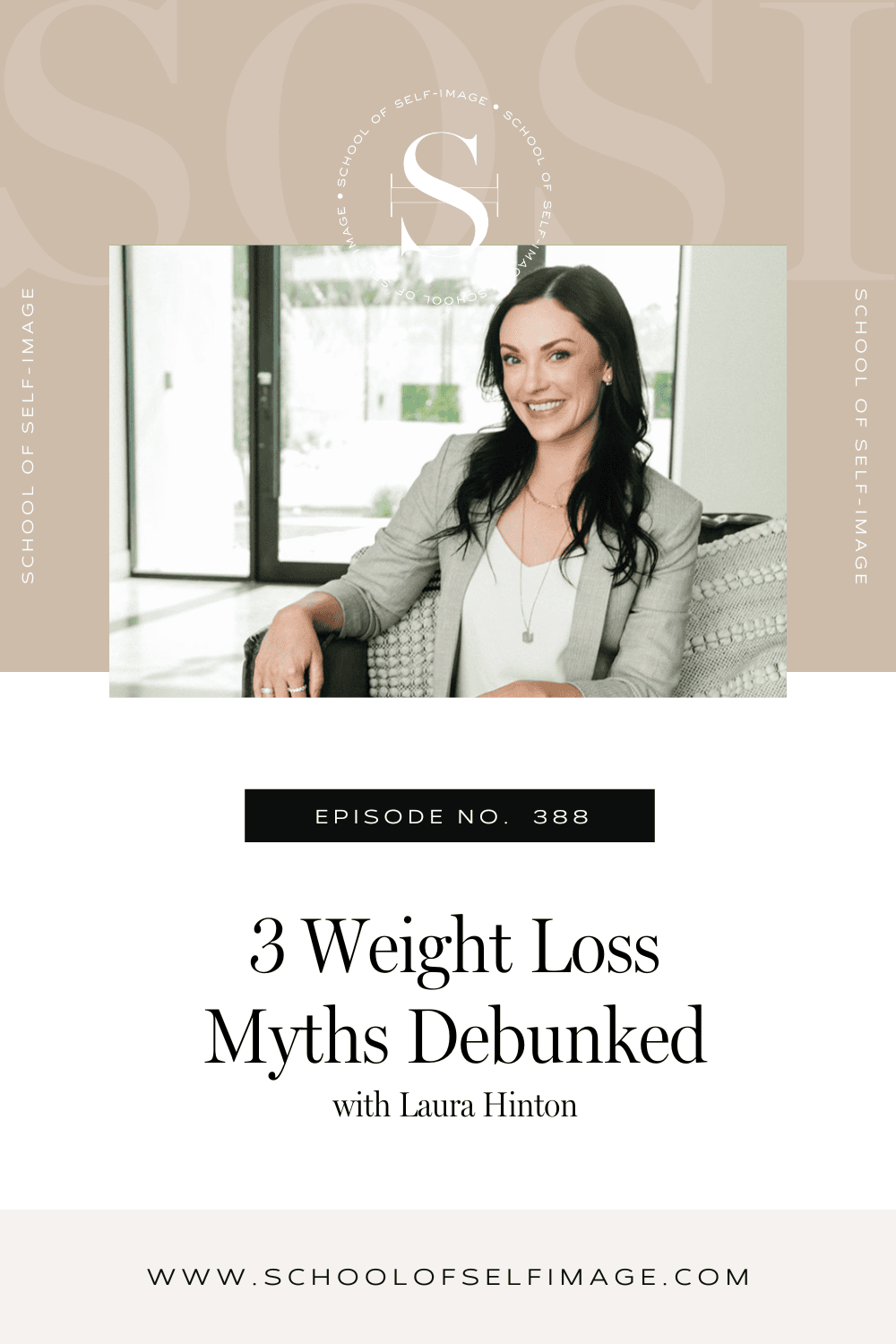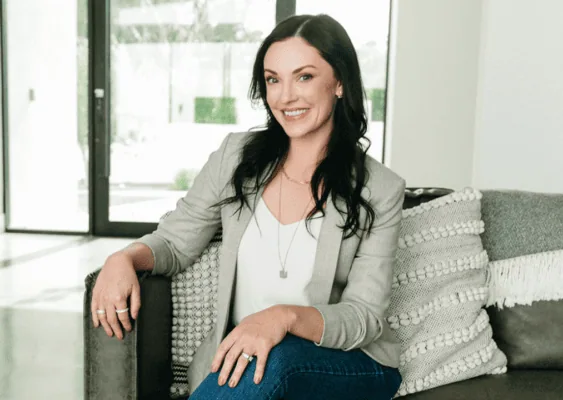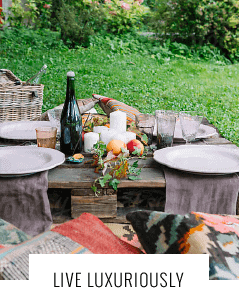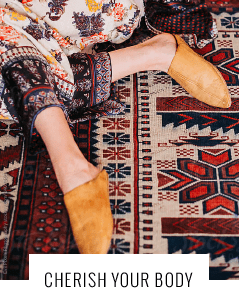Listen to the Full Episode:

Transforming Your Relationship with Food and Exercise: Insights from Laura Hinton
Weight loss can be achieved by changing our eating habits and our relationship with food, rather than fixating on strict diets and clean eating. Laura Hinton shares her journey with Tonya Leigh of losing 50 pounds by shifting her mindset around food. She stressed that she didn't have to eat only "clean" or "good for you" foods to lose weight. Instead, she focused on consuming the same foods she had been eating but in moderation and with a fresh perspective.
Laura's story underscores the importance of impartial evaluation and self-acceptance when it comes to food choices. She mentioned transitioning from self-judgment to self-love, which ultimately yielded more effective results in her weight loss journey. By approaching food with love and grace, she was able to make sustainable changes without feeling deprived or restricted.
When individuals shift their focus from self-criticism to self-acceptance, they are more likely to make healthier choices, listen to their bodies, and approach weight loss from a place of empowerment rather than punishment. This shift in mindset can lead to enduring results and a more positive relationship with food, exercise, and self-image.
The 3 Big Weight Loss Myths:
Myth #1: Clean Eating for Weight Loss
Myth #2: Exercise Intensity and Weight Loss
Myth #3: Self-Criticism and Weight Loss
Talking Points:
00:51 Weight loss myths debunked.
05:44 Body image and weight struggles.
10:31 Society of immediate gratification.
14:47 Surprising lessons from weight loss.
17:43 Relationship with food changes.
26:05 Liberation from food obsession.
29:26 Debunking clean eating myth.
34:58 Exercise mindset and expectations.
38:35 Exercise as punishment mindset.
Useful Resources:
-
Sign Up for the Slim Secret Webinar: https://schoolofselfimage.com/slim
-
Join The School of Self-Image Now: https://schoolofselfimage.com/join
-
FREE Download: https://schoolofselfimage.com/self-image-manifesto/
-
Sign up for the weekly Edit: https://schoolofselfimage.com/edit
Connect with Self-Image Coach, Tonya Leigh:
- Website: https://schoolofselfimage.com
- Instagram: https://www.instagram.com/schoolofselfimage
- Facebook: https://www.facebook.com/TonyaLeighOfficial
- TikTok: https://www.tiktok.com/@thetonyaleigh
- YouTube: https://www.youtube.com/@schoolofselfimageOfficial
Episode Transcript:
Do you struggle with your weight? Do you find yourself depriving yourself, maybe being hard on yourself and in a cycle that you just don't know how to get out of and yet you want to lose weight and you don't know another way, but you know dieting is not working, you know the constant food obsession is not working, and you want a new approach? If so, you're going to love today's episode because I'm bringing on a special guest and she is going to debunk three common weight loss myths that most of us have, but not after today. So let's dive in.
Welcome to the School of Self-image, where personal development meets style. Here's your hostess, master life coach Tonya Leigh.
Hey friends, welcome back to the podcast. I am so excited about today's episode because I'm doing something that I don't normally do, which is have a guest on the podcast and I cannot wait for you to meet her and for her to share her knowledge about her weight loss journey and three myths that she is going to debunk today for you all. But before I bring her on, I do want to let you know about something that is coming up very soon. It is a free live webinar that I am teaching called The Slim Secret. This is the missing piece to weight loss that so many of us don't have.
And I want to warn you, it is not a diet. It is not a food plan. It's not an exercise routine. It is a way that me and my guests today have lost I don't know how much cumulative weight together, but we've kept it off for years. And so we would love for you to join us for that webinar. All you have to do is go to schoolofselfimage.com/slim and get signed up to join us. Now for our special guest today, I want to bring on Laura Hinton. She is our community manager for the School of Self-Image membership, and I've had the opportunity to work alongside her for how many years now, Laura?
It feels like forever.
It feels like forever. I think it's been about one and a half now.
One and a half years and she has been such a valuable asset to the membership to our team, and I'm just so excited for you to be one of the first guests I've ever had on the podcast. So welcome.
Excellent. I'm so honored to be on the podcast, so thank you for having me.
You're so welcome. I'm really curious how you found the school.
Yeah. So I was in coach certification training back in 2000, or sorry, back in 2020. And at the time one of my fellow coaches who was in my cohort and now good friend, she had recommended your podcast to me. And of course I dove in, went all the way back to the beginning and started listening. I think it was French Kiss Life at the time. I was so drawn to everything that you were sharing and the perspective that you took on this mindset work. And so I was a casual listener back starting in 2020, and then in April of 2022, I was attending a live business event that you were speaking at.
I was like, yeah, this woman's amazing. She's brilliant. Whatever she offers next, I don't care what it is, I'm in. I'm just joining whatever it might be. And so I think it was just a couple weeks after that experience, you offered the Royal Treatment Workshop. And so I joined for that and automatically signed up as an annual member. And so from that point, I was in the membership absorbing all of the content and just loving every minute of it. And it was later that year in November of 2022 where I had made the decision that I was no longer going to be running my own coaching business anymore and I wasn't really sure what I was going to do next.
But I was actually at a retreat that we put together with that same group of coaches that I got certified with. And at that retreat, I saw a post from your team that you were hiring for a coach. And at that retreat, I just decided I think this could be the next thing. And all of my coach friends were like, you would be perfect for this. It's such a good fit. You should definitely apply. Promise us that you're going to send in your application. So I decided then and there at that retreat I would follow through and just apply for the position.
And so I ended up having an interview in early 2023 and I'm now here today.
Oh my God.
Here I am.
I'm so glad that happened that way. And I remember we got so many great applicants. It was such a hard decision for me. But when you just have that intuitive hit, it's like you can't quite describe it, but I was just, when I was looking at your videos and reading through your application, I'm like, I think this is my girl. And here we are. So thank you so much. And one of the things that we have in common is that we have struggled with our weight and you started this work as a weight loss coach and you've helped many women successfully lose weight, but you had your own journey of weight loss.
And so I'm really curious for you at what age, because I think we can all look back and we can sort of pinpoint an age where all of a sudden our bodies became a problem that we needed to fix. What age were you when that happened?
So I think the first time that I really had a negative thought about my body that I can clearly pinpoint and remember, I was 10-years-old. And I grew up dancing. I did specifically ballet training with the Colorado Ballet's program for kids through middle school. And then in elementary and in high school I did elite-level competitive dance. And while there are so many things that dance has taught me and so many parts of my character and personality that have been developed through that in such a positive way that have served me really well, for sure, one downside to that is you spend hours and hours every single day staring at yourself in the mirror, looking at the girl or boy next to you and comparing and constantly getting the criticism of something about your body is not enough, essentially.
And so I remember being in dance class at the age of 10, looking at my body, looking at the girl's legs next to me specifically and being like, huh, my legs are much larger than hers. There's something wrong here. I should look more like her. And so I think from that kind of teenage age of being in this environment, I started some eating habits that were not probably particularly healthy. And it really was this kind of constant message of your body's not right. It's not enough. What you're doing with your body isn't enough.
And so I think even from teenage age, I really had the idea that my body should be different. I should lose weight. I should be something other than I am, which is hysterical looking back on it because I was a normal child with a normal child body and there was nothing wrong with it whatsoever. Nobody would've ever looked at me and said, oh, that girl is overweight or unhealthy. And so that definitely just being in the dance environment really shaped not only my body image, but my self-image of this idea rooted in not enough and that has carried with me for many, many years.
And so I think the first time that I was an adult woman, and I'd always been kind of going back and forth trying to do this, trying to do that, trying to lose weight. But the really pivotal moment was when I got engaged and that was 2008. And I suddenly had this fear and panic that I was going to be "fat" for my wedding. And I thought the wedding and the photos and the memories and everything, this is so important. This is one of the most important parts your life. It's such a big moment. You have to look your best. You have to look better. You have to lose weight.
And so from pure fear and terror and lack, I spent the next year of this engagement time working, doing the traditional diet things, restricting, the traditional weight loss methods. I bought an elliptical and put it in my house and spent hours doing cardio, which I hate doing, just to lose the weight. And I did. We got married in 2009 and I was happy with how I looked, and I was very proud of what I had accomplished. And I'm certain I couldn't have put on that wedding dress 10 days later.
I just immediately started gaining the weight back and then just kept gaining more and more and more progressively each year for the next 10 years basically. So really the first time that I found something that finally worked was in 2018, that's when a friend of mine and another fellow coach had introduced me to mindset work. And I was like, oh, this is the missing piece of the puzzle that I've literally been searching for since I first wanted to lose weight back in my teenage years.
So how long did that process take you once you found? Because that's the question I often get from women. They're like, how long did it take you? And I think we are such a society of immediate gratification. We want the quick fix now. We want to lose weight by the wedding. We want to lose weight by bikini season. And we have just set ourselves up for this toxic cycle of white knuckling and getting the weight off, but realizing at the end it's not sustainable because of how we went about it and we're miserable.
I remember starving myself literally down to a size two, and I thought, this is going to be when I am most happy. This is going to be when I feel so proud of myself. And I got there and I realized I am miserable because I know I can't sustain this. But when we offer women, here's the real key, they sometimes can get a little frustrated because it doesn't happen so fast, but it happens and it's sustainable. So I'm curious for you how long that process took for you.
Yeah. So it was about seven months for me to lose about 50 pounds, and that brought me back to the same weight that I weighed at my 10-year anniversary that I did when I got married. And that was such a huge accomplishment. And I feel like from there I really struggled with could I ever weigh less than this because I know the torture I had to put my body through to get to this weight in the past, it seems like a miracle that this has happened fairly easily to get to this point now what would have to happen for me to weigh less than this.
And so it took probably another six months of really just working on my mindset to lose an additional 10 pounds from there. What was the bulk of my weight loss I think happened at a good rate. And then it was really some deep work to work down to that final 10 pounds, if that makes sense.
Yeah. And we see this in the membership, women will lose the weight and because in the past when they've done it, they did it through deprivation, through a lot of self loathing, they beat themselves up. But they use our process and they start to lose weight, but there's this moment of this seems too easy. This seems to be so backwards from the way I've done it before. And so we spent a lot of time coaching women around trusting the process, trusting their bodies. Did you have that when you were going through this of like, ah, it's almost too good to be true?
Absolutely. And I think at first when I was starting to lose and it felt easier than anything I'd ever tried in the past, it did have that moment of this is too good to be true. But what I coached myself into was that, oh, I just never had the right tools before. Of course, it was hard before you didn't have the tools that you actually needed to be successful. And I've said this before and I think it's a good image to kind of get this concept, but it's like when you're trying to paint a room that has 20-foot tall ceilings, but you're only given a three-foot ladder and a short little paint roller, and you wonder why you can't paint all the way to the top of the wall.
And for me, learning the mindset tools is what gave me the 15-foot ladder and the roller with the extension on it so that you could reach the entirety of the wall and it's like, oh, I just finally was given the proper tools that I needed. Of course, that's why this felt easier. Of course, it's why it was such a struggle in the past. I just didn't have the tools that I needed.
That's such a beautiful way of painting that picture because that is what it is. Having the tools and trusting that the tools that got you here will continue to allow you to live this way and live in this lifestyle. So that's so beautiful. I'm going to remember that one. What has been the most surprising thing that you've learned from this journey with weight loss?
So 100% the most surprising thing me was that I am in charge of the way that I feel. So prior to really understanding this mindset work and learning about how my thoughts and my emotions and my actions are all interwoven and interconnected, I really just lived my life as if everything just happened to me and I had no say about it. So things would happen, challenges would surface, life would come up and I would just say, well, I guess you're going to do your best. And to me, that was numb out and pretend like none of it's happening is my solution to that.
So to learn that life can still happen, things can still come up, challenges and obstacles are inevitable, but that I actually have power and control over how I experience all of them, how I move through them based on the way that I'm thinking, the meaning that I choose to assign to things, the interpretation that I have, that was shocking to me because nobody had ever taught me that growing up. And still to this day, it's why I love being a coach because I'm like, why on earth we taught this in school? It would be very helpful information to have.
But I didn't know it until I found this work. And so I thought I was coming to this with the aim of losing weight, and I was so surprised to find that I found a way of feeling better across every area of my life, creating results in every area of my life that I'd been wanting to create for so long. And it all just starts with a thought.
Yeah. That's so true. I see so many women get really discouraged and they're like, I don't want to try to lose weight anymore. I failed over and over. And what I try to tell them is that the work that you're going to do with this new approach, it is going to have such a big impact on every area of your life because it's deep work that we do within the membership around weight loss. And I know for me, in losing weight, that was one of the benefits as well. It's like who I had to become and the positive impact that had on my relationships, on my business, on my overall wellbeing.
And so when those are on the fence about do I really want another weight loss goal, I think it is worth doing this work because of the impact it's going to have in every single aspect of your life. And I think you would agree with that.
Absolutely.
Yeah. How has your relationship with food changed? Because that's a big topic. You can't talk about weight loss without talking about food. And so what has that journey been for you and how do you balance eating for your body and also having a good time? Because I've been out to dinner with you, we love to eat, we enjoy a good dinner. So how do you find that balance?
Absolutely. Well, I think the biggest thing that changed for me in terms of my relationship with food is that food is no longer a source of comfort. It's no longer a tool for me to not feel bored, to not feel sad, to not feel stressed. Food is no longer what I go to as a means to feel better. And I think all of that really comes again from the skill of knowing that the way that you feel actually comes from your thoughts. The way you feel is not changed by food. It may be temporarily, but long-term, whatever you were feeling is going to come back even after the cookie or the cake or the glass of wine because your thoughts about that original thing are still the same.
The food just gives you a break from that. But it's not a long-term fix. It's like a bandaid for a broken arm. It's not really that helpful. And so I think that shift of learning that food isn't my go-to method for changing or managing my emotions has really allowed me to then still have pleasure with food, still have pleasure with eating, but know that the pleasure and the fun and all the great things come from myself innately. And so in terms of social eating and still having fun, I love food. I only eat food that is absolutely delicious to me.
There is never a time where I'm forcing myself to eat something because I think I should or because it's the right type of food that's going to allow me to lose more weight. That never crosses my mind. Food has really become an equal playing field where there aren't good or bad foods, there's just food, and I can make a powerful decision about what I choose. Again, knowing that I love food, I only eat things that I feel are delicious. And also this food isn't here to help me feel less stressed or less sad. And so I love a 90/10 rule for still enjoying your life.
I think there are messages out there, and I definitely fell into this for a while, where it's like you should consider food only fuel. Food is only fuel for your body. And if food were cardboard, you'd be fine with it because you're just fueling your body and that's what you do. And to me, while there's people who get to that point and I tip my hat to you, it's not really where I wanted to go or what relationship I wanted to have with food. I still want to find pleasure in food. So for me, I like to think about it as 90% of the time I know and trust myself that I'm showing up and making powerful decisions with food.
I'm eating in a way that does align with satisfaction and pleasure, but also I know is a decision that I'm going to feel proud about that aligns with me being the woman and having the body that I want to have. 10% of the time, I'm going to be a human being. I'm going to experience human life. I'm going to be at a birthday party, I'm going to be at a New Year's Eve celebration, whatever it might be, and I'm going to make decisions that are probably not helping me lose weight, but that are allowing me to be a human being living a human life because I think that's important.
And I think being past rooted in perfectionism and this all or nothing mentality and this mindset where we think, oh, we can just never have a drink again or we can never have treats again, that never worked for me in the past. And so-
It doesn't work for most people.
No. It's like again, if you make that decision where your future self is never going to have a drink or have sugar or whatever it might be again, then great. I checked in with my future self and she was like, no, girl, you still like wine. You still like to have a cookie every now and then. So I just fully trust myself that 90% of any given timeframe, I'm going to be showing up, making powerful decisions with food that I love, and I love my reasons for why. And the other 10% of the time I might overindulge. And I love my reasons for why.
It's important to love your reasons for doing both, and I just know that the 90/10 split is absolutely enough. It doesn't have to be perfect. It doesn't have to be 100% of the time in order for me to be living the life that I want to live while having the body and the health that I want to have as well.
As you're talking, there's just such freedom, and that's what I want everybody to hear. And you lost 50 pounds and you've kept that weight off.
Yeah.
And to me, this is about liberation. It's not about deprivation because deprivation doesn't work. One of the tools that we teach is like the wild child and the dictator. And if you deprive of that wild child within you for long enough, she's going to come out swinging and she's going to want all the cookies, all the wine, all the Cheetos, whatever she can get her hands on. And so it is about finding your flow. It's about finding your balance that allows you to get the results you want while you're also enjoying your life.
And I feel like we've both gotten to a place where it's crazy to me, I don't even think about food until I'm hungry. And there was a day where I could not have imagined that this would be my life because probably like you, I was obsessed with it. I was always thinking about what's for lunch? What can I eat? What can I eat? It was just a constant mental obsession. And the thing that I always think about, and I'm curious to hear this from you, is that when you have dieted for so long and you're obsessed and it takes up so much of your mental space.
When you start following a program like the one that we teach, a lot of women start to have a little bit of sadness and this void because they've got now this open spot that has been so consumed with dieting and food, they're like, what do I do now? And I think that's a beautiful thing because then you can start to think about what do you want for your life. Outside of food and dieting, at the end of your life, what do you want to sit back and tell your grandkids about, that you were a great dieter?
Or do you want to tell them about all of these other adventures that you were able to go on and to experience because you found freedom from this one thing that took up so much of your energy? And so I'm curious, did you have that when you decided, you know what, I'm done with dieting, I'm just going to focus from the inside out? What was that like for you?
Absolutely. I mean, I think back to the way that I used to shop at the grocery store, and that used to be a two-hour activity because every single thing I saw and was interested in would also require me looking at the nutrition facts. How many calories are in here? How many grams of sugar? What is the protein content? Is this good? Is this bad? Which list does this belong on? Is this approved? Is it not? And the amount of drama that went into shopping for food at the grocery store alone took up so many hours, so many hours, so many cubicles of brain space.
And so even to just look at that one experience and to now where I just go to the grocery store and throw things in the cart that look good to me, that I know my body feels good eating, things that are interesting to me. Just that change alone is so liberating and so freeing. And thinking about just eating food with trust versus now I need to journal this down and I need to record and I need to write down how many calories did I burn and how many calories did I consume and do the math, and was it enough. I am so glad to not have that as part of my daily routine anymore.
And I think it was a big, big, big shift in how I tried to lose weight so many times in the past versus the experience I had doing it through mindset. So that said, I think once you're noticing that you have more clarity, more space, more room in your brain, and it isn't so over consumed with this food drama all the time. For me, a lot of that was deciding what I wanted to do next in my career. Because at the time I was losing this weight. I had just sold my prior business and was deciding what I wanted to do next. I didn't have a lot of ideas of what I wanted to do, of what I was interested in.
My vision of my future was not so clear in this process of clearing out the cobwebs related to food issues, now I had the space to decide what I wanted to do next, which was to get certified as a coach and to be able to help people in the same way that I had just helped myself and to be able to create a business out of that and start helping so many other women. So I feel like I would not have had the availability or the energy in my brain to be able to create all of that had I still been just in this constant obsession with food and eating all the time.
Yeah, I think so many people can relate to that. I even think about all of the hours I spent at Barnes and Noble. Because remember when we had Barnes and Noble, I think we still have them. But I would just go and sit and read diet books. It was like I got a high, the next diet book that came out, I'm like, oh, this is going to be the one. And I was addicted to dieting. It was in a way, it was like a dopamine hit. It was fun for the first day or two thinking about this new diet that may work, but the hours I could have walked, I could have learned new languages.
I could have done so much with that time. And that's what I want everybody to think about if you weren't dieting, what would you be doing with your life? Where would you be focused? Where would you be growing? What would you be doing with your family, with your friends? It's like a really good question. Because when you start to pull dieting out of it, you're going to be revealed so much about yourself. So let's talk about the three myths that you're going to debunk for us today.
I can hardly wait.
Let's go. Start with number one. What's the number one myth that you want to debunk?
All right. Well, this one was so deep-rooted into my upbringing and years of traditional diet mentality, and that was I have to eat only "clean, good for you foods" to lose weight, which also means what I'm eating now isn't good enough. So like I said, a lot of my upbringing was rooted in not enough, not good enough, not doing enough. And so for me it was this idea of whatever you're eating right now is total garbage. You need to get rid of it all. I think that's such a common practice within traditional diet culture is like, okay, we picked up the book at Barnes and Noble, we're starting on Monday, and first thing we're doing this weekend is clearing out every bad food that's in our pantry, that's in our refrigerator.
We got to clear it all out, get rid of it. We're just not eating that anymore. We got to tell the whole family, get them on board, husband, partner, kids. There's no more Cheetos allowed. They've all been thrown away. We're all doing this and we're eating carrots and hummus for the next six months. And I did that so many times, so many times.
Poor family, they get whiplash. They're like, oh, next week we're doing keto, so no more carrots because they have carbs. Now we have to do keto.
Get ready. Yeah. My husband would be like, no, not doing it. So yeah, I think the one single thing that really was the catalyst for this weight loss through mindset practice for me was that I just started with, I'm going to take all the foods that I'm eating. I didn't eat terrible. I wasn't somebody who went through the McDonald's drive-through, or I didn't eat terribly, but I didn't eat. We talk about sexy foods in some self-image, and I wouldn't say all of my foods were very sexy by any stretch, but I wasn't a horrible eater.
And I just thought, okay, if I just start with taking the same foods that I eat in any given week and I just eat a little bit less of those, what's going to happen? Instead of trying to go to this place where it's like everything that I'm doing right now is bad and not enough, that means I'm bad and not enough, and we've got to start from ground zero and do this huge leap from nothing to all. That was what really was helpful to me. And I lost that 50 pounds eating the same foods that I had been eating 10 years prior. Still had pizza, still had mac and cheese, still had steak and potatoes.
All the foods that I ate were the same. I just started looking at when am I eating because of real true physical hunger. I had to re-associate myself with that. I had no idea. I had lost complete touch with my body. I had no idea what true hunger was. So starting to get back in touch with that and then finding what times am I eating for real true physical hunger and when am I eating for something else, for an emotional reason, for a habitual reason. And just starting to slowly minimize that habitual and behavioral and emotional eating and starting to get more in line with eating those foods from a source of knowing that my body is hungry made all the difference to me.
I did not have to only eat carrots and hummus or go keto or any of these things. I literally lost 50 pounds eating the same foods that I always had been, but just doing it from a completely different way, a completely different mindset, and really starting to build that skill of making decisions from physical hunger versus from emotional or habitual hunger.
Yeah. That's so good. And I can imagine, I'm sure it happened for you and it probably happens for a lot of people, but when you're doing that, there is that old voice in your mind saying, you're eating bad foods. You're bad. What are you doing? How did you manage that?
I think I really just believed the thought of that never worked for you before, so let's just try something different. And I noticed how on board my brain was when I was like, you can still have pizza, but instead of eating half the pizza, we're going to have two slices and see how that goes. And so knowing that that was so much more of a loving choice versus in the past where it's like pure punishment, pure restriction, I've got to beat myself into thinness and all these things, just agreeing finally, that probably wasn't a method that served me very well.
Clearly, I'd never been able to lose the weight and keep it off in the past. And being able to believe it's possible I could do this from a place of love, from a place of grace, from a place of building and self-integrity, that really brought a lot of comfort to me during the process.
Yeah. Great. What about myth number two?
Okay. Myth number two was I have to exercise like a maniac, AKA the movement I'm doing right now is not enough. So I think, I mean, I see this in the membership often where the types of exercise that we do, we categorize into enough or not enough. And some of those things include, am I sweating? Well, if I'm not sweating, then it's not enough. Did I do this for an hour or for two hours? Well, if not, if I only did it for 15 minutes, then that's not enough. Am I super sore the next day? I'm so sore, I can't even walk down my stairs in the morning.
Well, if I'm not, then my workout the day prior wasn't enough. And I think we create a category of exercise that's so unrealistic. I remember I had a period of time for probably about six months where I would go to the gym and be there for three hours. I would go for a walk that was two hours long, and it was still in my mind, oh, not enough. I should have been doing more. It's just like, no, at least for me, I don't want to be doing that. I don't want to spend six hours a day walking and at the gym. And so to me, I had such a challenging mindset around exercise.
Again, so much of it was tied to the dance that I did growing up and other I said, I bought the elliptical and would run for hours before my wedding. And all these things I, for me, and I'm not saying this is the right choice for everybody, but it was the right choice for me. I decided that working out, exercise, movement was something that needed to be put on the sidelines, put it in the jar, put it on the shelf, and we're going to get to that later. And I just focused on the food aspect and drinking aspect to lose that weight.
So I always like to say when ladies, they get injured and they're like, oh, I'm not able to exercise, now I'm going to gain all this weight and yada, yada, or I can't exercise. I can't move my body. It has limitations. I'll never lose the weight because of that. I lost that weight without doing any exercise, which to me was mind-blowing because that exercise component I felt was always a required part of the formula in the past. And it was really interesting to just prove that to myself that all of this weight could be lost just from changing the way that I eat and the relationship I have with food.
The only movement I did with my body was walking around the grocery store and running errands at Target, walking to the mailbox and back. I didn't do anything that I previously would've considered the right amount of exercise to lose weight, yet I lost all the weight. So that to me was a big deal. And since then, I've been spending the last two years focusing on reshaping my relationship with working out and with moving, and that's a whole nother story for another day. But it was for me at the time, just something that the right choice for me was to put that to the side and address it later.
Yeah. And so many people, especially in the diet industry, they use exercise as a form of punishment. Absolutely. It's like, oh, I overate, well, I'm going to have to work out extra hard tomorrow. Or I've gained some five pounds, I've got to work out. And what really changed for me is when I separated out exercise and no longer associated it with weight loss. It was now something that I did to be healthier, to feel better physically, and I didn't associate it with trying to lose weight. And also knowing that every step counts, every little thing that you do has a negative or positive impact.
And so when I gave myself the grace of even if you can go for a 10-minute walk, you're doing it for your health, you're doing it to move, you're doing it to feel better. That's when I started to reestablish a healthy relationship with exercise because I was like you, it was never enough. I could always be doing more.
Yeah. You have really helped me shift my mindset around exercise, so I have you to thank for that.
Fine. It's fun moving our bodies. It's not fun moving it to punish it. That's not fun.
Absolutely. And that is definitely where all of my past workout was fueled from was punishment. No longer.
No longer. What about myth number three?
Okay. So we've touched on this a little bit throughout the other two myths, but in my opinion, I have to be mean to myself and punishing, anything less than perfect is not good enough. And so like I said, all the other past efforts to lose weight and the way that I tend to treat myself is from a very critical and judgmental place from I think, I don't even know where I first saw this, but the kind of stereotypical sorority movie where you're going to walk into the sorority and they're going to whip out the Sharpies and start marking up your body and putting X's on all the places that are too fat and everyone's judging you.
That's literally how I looked at myself. And I have memories of just looking in the mirror and judging head to toe, this is gross. You're disgusting. This is fat. Who would ever want to see this? You better cover this up. What are you going to do tomorrow to get rid of this? This is so awful. You're the worst. And just trying to lose weight from that perspective and from that mindset feels terrible. And I think when we get into talking about the perfectionist side of things, having the I have to do it all at 100% all the time or else I'm just horrible and I shouldn't do anything.
It's like you can use that mindset to motivate you so far. I mean, you can use it for a short period of time. You might even see some results from it, but it feels so awful. There's no way you're going to do that at a long-term capacity. There's no way you are going to feel great living the rest of your life treating yourself in that way and working out and eating from that perspective of you're so disgusting. You should know better. You should figure this out. That feels terrible when you think those thoughts.
And you can only show up and take positive actions from that negative place for so long, in my opinion. So it was a big, big shift to move from the self-judgment to just neutral assessment, to move from the self-criticism into some self-love, to move from self-disgust into self-acceptance. And come at the action I wanted to take from a more loving and graceful place, I had so much resistance to it, and then I was pleasantly surprised when it actually turned out to be the most effective way to create the results that I wanted to.
I really didn't think it was going to happen. I really wholeheartedly believed I need to be mean and judgmental to myself to make things happen. And I'm so glad I found that's not true.
Yeah. It makes me think of one of my favorite Abraham quotes where they say, "There is no happy ending to an unhappy journey" because wherever you go, there you are. And you might be there in a smaller body, but if you don't change what's going on between your ears, you're not going to be any happier. And I think we've both experienced that and now we've found a better way. Well, Laura, thank you so much for coming on the podcast. And I think what I'm about to share, the members of the school will also share in these sentiments.
But it's been a pleasure having you as the community manager and really supporting women in the membership at coming to weight loss with a whole different lens of health and vitality and love, curiosity versus the way we typically come about it, which is through deprivation and struggle and being hard on ourselves. And so thank you so much for being a part of this community, and I'm excited for you all to get to come into the membership and get coached by me and Laura around the topics that we've talked about today on the podcast. So thank you again for being here.
Thank you so much for having me. Yeah. I think so much changes, even when we say, I want to lose weight versus I need to lose it. And so I think the members are so lucky to get to experience this method of losing weight with a whole different lens, a whole different perspective, a whole different approach than many have ever done in the past. And it's just so exciting to see all of the discoveries and realizations and things that they are learning and how it's really impacting the way that they are experiencing their life.
So it's a pleasure to be part of it, and I just thank you so much for letting me be there and share.
You are so welcome. And again, I am teaching a live webinar very soon. Come join us. You can go to schoolofselfimage.com/slim to sign up for the slim secret. Thank you, Laura.
Thank you.
Take care. Hey, are you ready to transform your self-image but lack direction and support? If so, I'd like to invite you to join the School of Self-image. This is an exclusive monthly membership where you'll create your own powerful before and after story. Through weekly classes and coaching, you'll learn powerful techniques on how to elevate the quality of your mindset, style, and surroundings to change how you see yourself and create extraordinary results in your life. Head over to schoolofselfimage.com/join to learn more.
Enjoy the Show? Don't miss another episode!
Pick your favorite platform below:
The Self-Image Manifesto
You’re Invited To Live An Extraordinary Life!
IF YOU LIKE IT, SHARE IT











